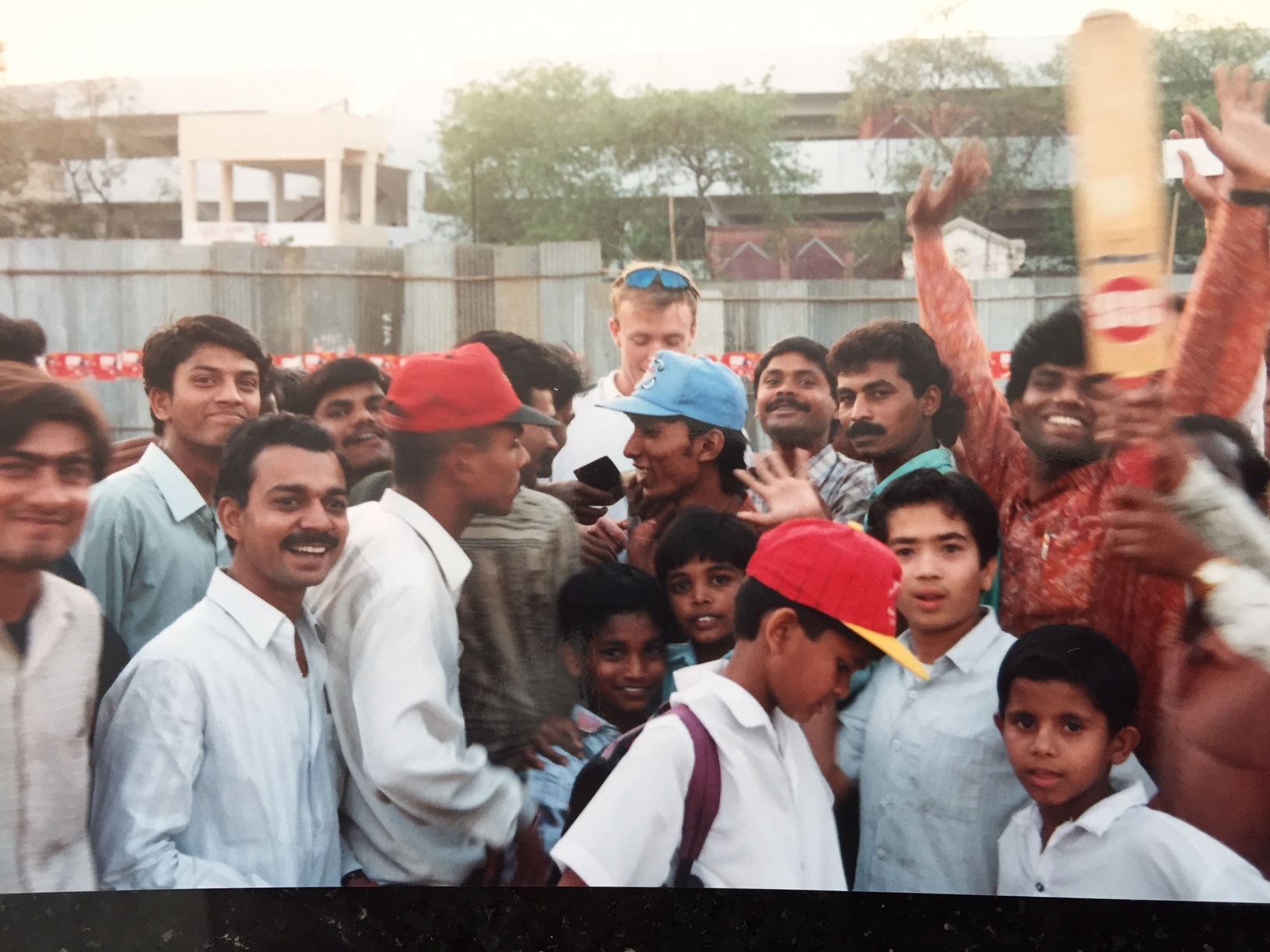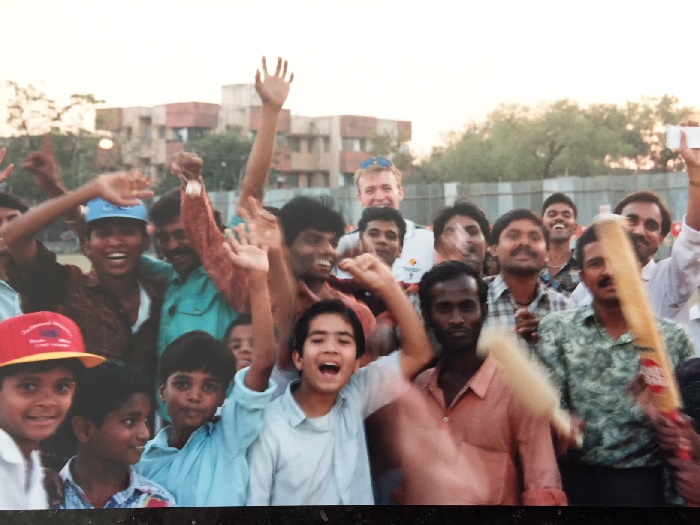The greatest moment in Australia-India cricket relations
James Knight | January 31, 2023

As Australia and India launch into another test series, there will be the inevitable discussions about the greatest moments and players that these two giants have given us. Perhaps one stands above all others…
Long before the most ubiquitous word in Australian cricket was ‘culture’, a journalist colleague and I arrived back at our hotel in Nagpur, India, after watching the Australian team train. The following day, the Mark Taylor led side was to play Zimbabwe in a preliminary round of the 1996 World Cup. However, our attentions were momentarily diverted from that encounter by the sight of six boys playing cricket on a dusty field on the opposite side of the road from our hotel.
To avoid this being too long a story, I will cut a few corners and say that we quickly began playing with the boys, most of whom were probably in their early teenage years. Within minutes of our arrival the participating numbers swelled to dozens, and then countless more. Boys, girls, men, women, stray dogs with teats that dangled like Christmas decorations…
We played until sunset, then shook many hands, and signed autographs on all sorts of hastily discovered pieces of paper.
“Will you come again tomorrow?” asked one, then another and another of the boys.
“We can’t,” I said with disappointment. “Australia has a game and we must work.”
Thankfully fate played a helping hand and Australia won so easily the next day that we finished our work early, and when we arrived back at our hotel there were the original six boys, with bats and balls in hands, loitering nearby.
So back we went to the dusty field for more handshakes, scribbles of our names, and long run-offs that pushed in through the gloom while tuk-tuks, cars, trucks, and tractors farted the background score to spasmodic bursts of ‘Good shot, sah’; ‘Oh very well bowled sah;’ and ‘You are very fine player, sah.’
Eventually, darkness chased us from the field.
“Goodbye, we leave tomorrow,” I said.
Smiles, head wobbles, memories of simple joys.
“Goodbye, sah.”
I walked away with a bounce in my step.
Then, after I returned to my hotel room on the second floor, I was drawn to look out of my window, and…

On the street below, I saw six faces staring upwards, with eyes roaming from window to window until it seemed that all met mine at the same moment.
I will never see more frenetic waving and jumping in my life.
Very soon, I was back on the street, giving each of the boys a bottle of water that I bought in the hotel.
“Thank you, sah. Very kind sah.”
“Who wants to come for a run on the cricket field?” I replied.
“Oooh yes sah.”
My memory still hears the sound clearly: sandals slapping on dust. Of course there was also puffing, but after a lap or two this surrendered to rapid-fire whispers in Hindi, a language I ignorantly knew nothing about.
And then the boys disappeared.
No-one said goodbye.
I shuffled on, saddened by the abruptness of the departures. After all, I’d given these boys water, I’d played cricket with them, I thought we were friends.
But India is as India does.
I kept running. One lap, two, then…
Slap, slap, slap.
“Sah, stop sah.”
It was so dark I could barely make out the faces, but I knew there were six of them.
I stopped in front of the boys, and one of them, grinning broadly, reached into his pocket and pulled out something.
“Sah, for you sah.”
It was a small block of chocolate.
Worth a matter of Australian cents.
I deduced that the boys had run to a street vendor and bought the gift with the little money they had.
“Thank you, so kind, but I can’t accept this,” I said.
“Please sah, please.”
“Well, ok, but we must share it.”
The grins lit up the evening.
We ate that chocolate while sitting cross-legged in a circle on that dusty field.
Looking back, there are so many details I could add to the story. The boys’ clothes, the way they smelt, the grime on their skin, the whippy bowling actions, the wristy flicks backward of square leg…
But they matter little when compared with my one regret about that moment.
To this very day, I wish I’d kept the chocolate wrapper.
James Knight is the author of Spirit Of The Warrior - a fictitiou kids' story that aims to promote relationships between Australia and India through the beauty of cricket.
The story is told through the eyes of a drought- affected farm boy, Jack, and an Indian boy, Ajeet, who has just arrived to live with his family in an Aussie bush town. They don't always see eye-to eye, but in the end, this is a beautiful story about the strength of human spirit.
Although it is aimed at upper primary school and early secondary school readers, there are messages in it for all of us








